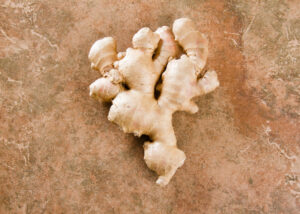
Anyone who has ever owned a home knows you need more in your toolbox than a screwdriver. You might need a broom, drill or drywall to maintain your home. Your body is even more complex, and it’ll take a full toolbox to meet its needs and challenges throughout your life.
By now you’re accustomed to the treatment options presented by your doctor, which are typically medication, physical therapy or surgery. Traditional Chinese Medicine (TCM) also has a unique set of modalities to treat health conditions. Most people are familiar with acupuncture and related physical modalities (guasha, cupping, moxa). In many cases, especially for more musculoskeletal and pain conditions, acupuncture is the primary tool. But for more chronic, internal or complex conditions, your acupuncturist will prescribe Chinese herbal medicine.
Chinese herbs consist primarily of plant, mineral and resin sources. Many are common household foods and spices (fennel, clove, ginger, cardamom, watermelon, etc.). It’s important to procure herbs from a trained and licensed acupuncturist to guarantee safety and authenticity. Herbs imported from China or Taiwan must be FDA-approved and adhere to strict safety guidelines. Licensed acupuncturists use professional herbal products with extensive testing and quality control. Please see Chinese Herbs: Fact and Fiction on the Heritage blog for more information on safety issues. (https://heritageacupuncture.com/chinese-herbs-fact-and-fiction/).
The 300-plus single herbs in the Chinese materia medica are used to create formulas or classical herbal combinations for specific conditions. Many formula compositions have existed for thousands of years. At Heritage Acupuncture, we practice a classical form of Chinese herbalism that originated in the Han Dynasty (206 B.C. to 220 A.D.). Your specific prescription is based on not only the chief complaint, but other accompanying signs and symptoms, overall health and digestive function and the progression of your illness. Formulas are completely customized according to your unique presentation. There are no “one-size-fits-all” remedies in Chinese medicine.
For example, if three people seek treatment for asthma, each might receive a different herbal formula. One person may be experiencing shortness of breath and fatigue. The second may be coughing up thick phlegm and the third may have chronic post nasal drip and allergy symptoms. Each person needs a different herbal remedy and acupuncture point combination.
Even one herb can have different forms that treat precise variations on symptoms. For example, sheng jiang, or fresh ginger, might be included in a formula to treat an acute cough. With a chronic cough, your acupuncturist may change the ginger to pao jiang, a blast-fried ginger recommended for long-term lung conditions. If the cough has mostly healed and you’re left with general weakness, then gan jiang or dried ginger is the best fit. It takes years of training and practice to know the variations and when to use them.
As a patient, you can be assured that your symptoms and overall health matter to a practitioner of Chinese medicine. There’s virtually no way to prescribe an herbal formula unless the provider understands your condition in detail.
If you’re looking for a medical experience where the practitioner is concerned about not only your current symptoms, but your general well-being, Chinese medicine is an excellent choice. Chinese herbal formulas are a powerful health ally that work gently and holistically. The “side-effects” are typically better sleep, improved digestion and more energy. All you really have to do is show up consistently and let the practitioner take it from there.